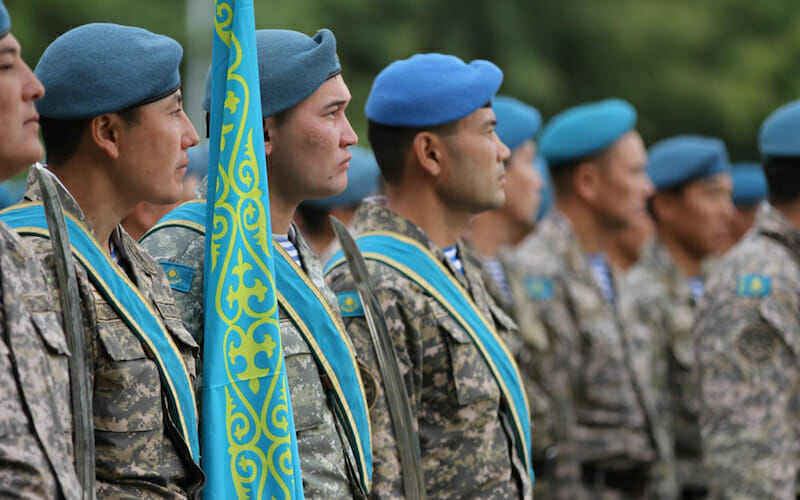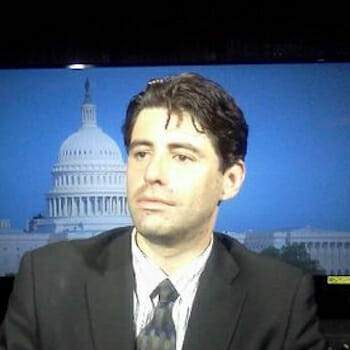
Kazakhstan Should Have a Bigger Role In UN Peace Operations
Kazakhstan held the rotating presidency of the United Nations Security Council (UNSC) throughout January 2018, a significant accomplishment for the Central Asian country, which has also chaired the Council of Foreign Ministers of the Organization of Islamic Cooperation, and the Organization for Security and Co-operation in Europe in recent years. While Astana’s seat in the UNSC is certainly commendable as it is the first Central Asian nation to join this body, the Kazakh government should take a further step forward as it strives to promote global stability by having a larger role in United Nations peacekeeping operations (PKO).
To be clear, Kazakhstan has participated in peace operations and has carried out non-military operations in other missions, but the author argues that this presence should be increased. The Central Asian state first announced that its armed forces would participate in PKOs in 2013. According to January 2018 official data by the UN’s Peacekeeping Operations website, there are currently five Kazakh experts on mission serving in the UN Mission for the Referendum in Western Sahara (MINURSO).
Apart from the UN, Kazakhstan deployed Army engineers to Iraq after the 2003 war to provide humanitarian assistance, including carrying out mine-clearing operations. “In 2003, Kazakhstan sent 27 military engineers to assist operations of the coalition in Iraq. Over five years, nine contingents totaling 290 Kazakh peacekeeping troops were rotated through Iraq,” the Kazakh government reports. Finally, Kazakh troops have been involved in training foreign troops, such as Afghan border security forces, to help improve internal security in the fellow Central Asia state.
While Kazakhstan’s role in peace operations is praiseworthy, more can, and should, be done. It is worth remembering that, upon joining the UNSC in 2017, Kazakhstan stated its priorities, which ranged from “eliminating the threat of a global war” to “bringing peace to the African continent.” Tragically, eight of the UN’s 15 PKOs are located precisely in Africa, such as the UN Organization Stabilization Mission in the Democratic Republic of the Congo (MONUSCO) or the UN Multidimensional Integrated Stabilization Mission in the Central African Republic (MINUSCA), which have well over ten thousand peacekeepers each, in an attempt to strengthen security and the rule of law. In order to keep up with its noble intentions, the Kazakh government should consider sending additional troops to more UN peace missions.
Training foreign security forces and sending engineers is an important component of promoting security and state-building, however, it has to go hand in hand with improving the security situation on the ground. Sadly, there are plenty of hot spots of violence that warrant attention and active participation from the international community, particularly from capable armed forces. In other words, the UN could use well-trained Kazakh troops on the ground in countries like the DRC, CAR among several others. As a final point, it is important to stress that saying that Central Asian armed forces as “well-trained” is not an overstatement, as Kazakh defense personnel regularly train with military powers such as the U.S. Case in point, in September 2017, 35 troops of the country’s peacekeeping battalion carried out a three-day training course with instructors from the U.S. Defence Institute for Medical Operations. Also last year British, Kazakh and U.S. troops carried out Exercise Steppe Eagle – Spring 2017 at the Iliyskiy training centre.
The decision to deploy more troops to UN peace missions should not be taken lightly, as there is an ever-present possibility for violence and, sadly, casualties – like the tragic deaths of 15 Tanzanian peacekeepers, assigned to MONUSCO, in December 2017. Thus, the Kazakh regime should not commit to deploying additional troops to UN peace missions without a careful consideration of the potential risks that such a deployment entails. With that said, instability and violence in the world continues, and nations like Kazakhstan, which have pledged to promote global peace, must have a bigger role in helping bring stability to troubled areas.
The views expressed in this article are those of the author alone and do not necessarily reflect those of any institutions with which the author is associated.

